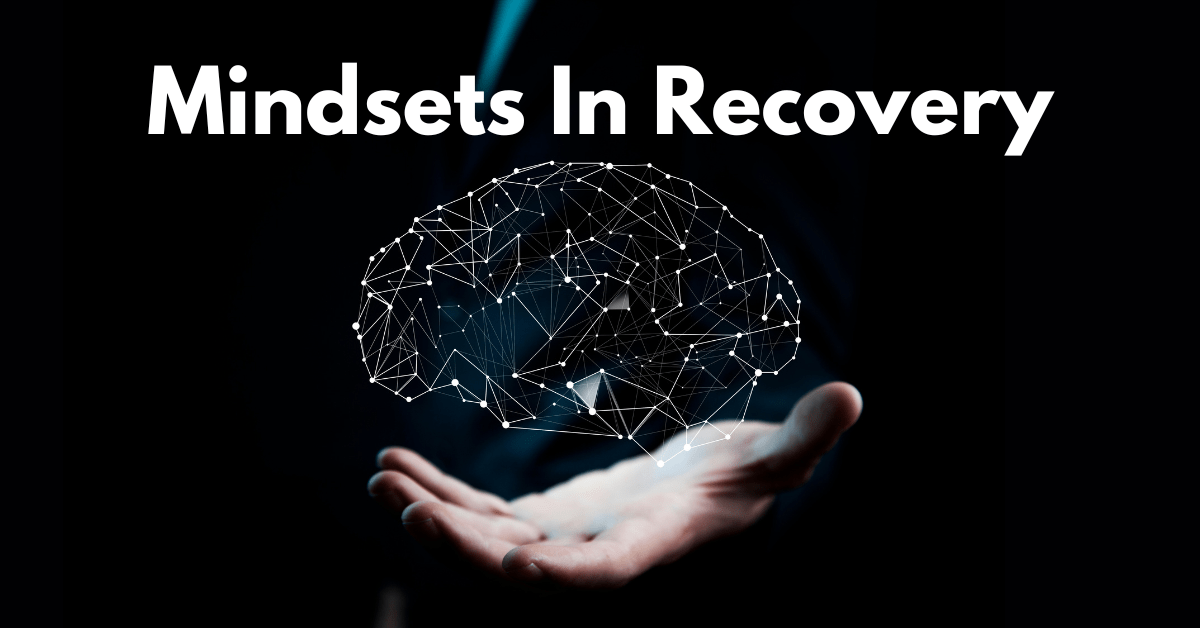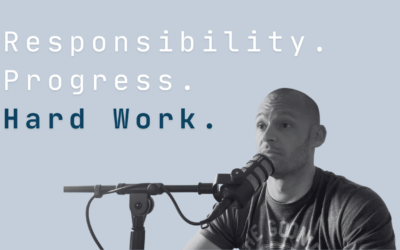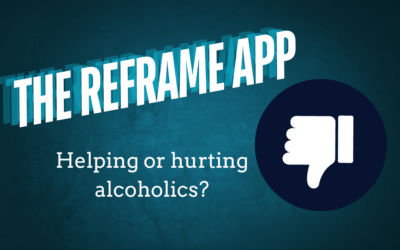Mindsets are simply a set of beliefs and values that shape the way we view the world. When in active addiction, it’s likely that we held beliefs about ourselves and the world around us that were detrimental to our lives. Constant excessive drinking and drug use breeds negative thought patterns and a distorted view of reality.
When entering into recovery, the development of positive mindsets that serve us can lag behind our comfort of living without drugs and alcohol. Time spent clean and sober will naturally lead to a shift in mindsets, but we can benefit from actively identifying what mindsets have carried over from active addiction, eliminating those, and consciously working to build new mindsets that benefit us in recovery and in life overall.
Listed here are 9 mindsets that I’ve developed over the course of my recovery. I strongly believe that they can benefit others as well, and while some may sound obvious, keeping these mindsets at the forefront of our thinking helps to integrate them into our own belief systems.
When creating this list I wanted to make sure each mindset satisfied the following requirements:
1. I could frame them around my addiction and recovery in a way that benefited me
2. They proved to be beneficial long-term and did not change
3. They were universally beneficial and not unique to my circumstances or experience with addiction and recovery
Read through this list and give each item some thought. Determine if and how you can use them to improve your own circumstances in life and in recovery. Take notice if any of these mindsets contradict beliefs you currently have about yourself and the world around you. If they do, ask yourself: which one will serve me better?
1. It’s not supposed to be easy
Life is hard, don’t expect it to be easy. This is something we’ve probably heard a thousand times in our lives. Despite this, most people still go about trying to make things as easy for themselves as possible. They want to struggle as little as possible, remain as comfortable as possible, and at the same time they have great expectations for their lives. Knowing this makes it worth repeating because anything worth doing is going to require hard work.
But the truth of the matter is it’s all hard, so we should choose the hard with the greatest reward. It’s hard getting clean: it requires a lot of sacrifice, it requires us to change our lives in major ways, and it requires us to venture out into the unknown of what life in recovery is going to look like for us. But active addiction wasn’t any easier. Our mental and physical health suffers, our relationships suffer, our self-esteem suffers, etc. etc.
It’s the same with everything else in life. It’s hard to get in shape but it’s hard to be lazy and out of shape. It’s hard to put in the effort to read and study for your exams but it’s hard to continuously get bad grades and waste your time in school.
What we need to do is figure out what we want for ourselves and remember that getting there isn’t going to be easy. But neither is the regret of not putting in the work. Once you truly accept this, progress in your recovery and in all other aspects of your life becomes much more manageable.
2. Always keep the ball moving forward
We should accept that there is no standing still. We are either moving forward or moving backwards–making progress or regressing. Choose progress. Not remembering this fact allows us to become complacent, and whatever we become complacent with in our lives slowly dies.
This mindset will help provide us with the motivation and discipline to keep taking action. We are always battling inertia, our inclination to do nothing and resist change. But doing nothing is the same as moving backwards. When standing still, time is not our friend.
Prioritize and commit to making even a small amount of progress each and every day. When it comes to your recovery, everyday clean and sober is progress but this is only passive. Moving forward requires your active participation: reading literature, focusing on personal development, and taking care of your responsibilities, among others.
You can’t stay in the same place, so don’t get comfortable there. Take action and keep moving forward.
3. All of life requires sacrifice
We are always choosing one thing over the other. Any time we make a decision to take one path, we are also deciding to not go down the other. The word ‘decide’ comes from the latin word ‘decidere,’ which means to ‘cut off.’ By deciding, we are cutting off other opportunities and options.
If we spend money on one thing, we are losing the ability to spend it on other things. If we spend time doing one thing, we are losing the ability to spend time doing other things. Everything we do in life can be viewed through the lens of making sacrifices.
When we realize this, we can accept the fact that we can’t have it all. We must decide what is important to us and make sacrifices in order to attain it. In the case of recovery, we are sacrificing the ability to use drugs and alcohol in any capacity in order to create a better life for ourselves and those around us. We are also sacrificing immediate gratification for long-term prosperity.
Being able to consciously make sacrifices and understand the reason why we are making them is an absolute necessity. If we don’t weigh our options and make decisions for ourselves, circumstances will make them for us which is rarely to our benefit.
4. Going back isn’t worth the risk
Sometimes people are going to ask you, and sometimes you’re going to ask yourself, “Do you think you could ever drink again?,” or “Why can’t you just smoke weed?,” and other questions like this that really don’t get the point of recovery. Twelve-Step programs like Narcotics Anonymous and Alcoholics Anonymous will tell us that this is impossible: we are addicts and starting back up again will never be manageable long-term. The truth is though, no one really knows for sure, do they? This comes with a huge caveat. It doesn’t matter. It’s simply not worth the risk.
In all likelihood, the Twelve-Step programs are right and going back to using isn’t going to be manageable long-term. Even if things seem okay for a while, eventually it’ll catch up with you and begin tearing your life apart all over again.
That’s not to say I haven’t met people that identified at some point in their lives to have a problem with drugs or alcohol, gave it up for some period of time, and then went back and are seemingly doing okay. Let’s remember that this is from an outside perspective though. We don’t truly know what toll continuing to use in this capacity is doing to his or her mental state or overall wellbeing.
The biggest thing to remember is that there is a chance (a large chance) that going back to using drugs and alcohol in some attempt to not overdo it this time will only lead back to the same old patterns and behaviors we worked so hard to get rid of. There is a chance that everything we built up in recovery can be thrown away by making one bad decision.
As long as that chance is non-zero, we should be unwilling to take the risk. There is too little to gain and too much at stake.
That doesn’t mean from time to time the thought isn’t going to cross our mind, or that people aren’t going to ask. What’s important is that we adopt this mindset and remind ourselves of this fact when the question arises. Don’t take the chance, you are beyond a doubt better off clean and sober.
5. Don’t aim for happiness
This one is going to sound counterintuitive, especially in an age when society is so concerned with how pleased we are at every moment in time. We have been taught to avoid the slightest discomfort or pain in our lives, label them negatively, and only seek out those things that bring immediate comfort. But we did this while in active addiction. We were seeking immediate gratification and relief every time we used, and look how that turned out for us.
I’m not saying don’t aim for things in life that make you happy, but using it as the first barometer of whether or not you are heading in the right direction is destined for failure.
How happy we are or aren’t is dependent upon a lot of things that are outside of our control. There will certainly be times in our lives where loved ones die, bad news arrives, or the unexpected happens and we simply aren’t happy no matter what we do because we can not control the circumstances. That doesn’t mean we are on the wrong path and it doesn’t mean we need to immediately change the way we feel. Sometimes bad things just happen to us, and sometimes we have to make sacrifices that decrease how happy we are in the short-term in order to succeed long-term.
What we should aim for is living a life based around progress, responsibility, and discipline. We then have a life built around purpose and meaning which increases our overall satisfaction even if we aren’t always happy.
6. Don’t go it alone
As humans we need people. We have a need to feel connected with others and crave a sense of belonging. This is especially true when dealing with circumstances that are hard on us physically and emotionally, which is why it is so important for us in recovery.
If you’ve ever attended AA, NA, or another Twelve-Step program, it is likely that one of the first things you were told was to get a support group. This is simply a group of other addicts or alcoholics that you keep in touch with regularly to share experiences, frustrations, and advice in recovery. This helps us realize that we are not alone and that someone else understands what we are going through. It also helps us build knowledge and strategies from others who have spent a longer time in recovery than us, and eventually the ability to pass our own knowledge and experience on to others.
But this should not be the only support we have in our lives when it comes to recovery or any other endeavor for that matter. We should make absolutely sure that the people close to us in our lives such as our significant others, our siblings, parents, and friends all support and understand our need to stay clean and sober.
We don’t need them to understand what it’s like to be an addict if they aren’t. This is extremely hard to understand because when you break it down, the behavior is totally illogical. I myself don’t truly understand why I’ll continue to use drugs and drink even when it’s clearly not in my best interest and no longer even pleasurable. That’s the entire problem. And if even I don’t understand why I behave the way I do when in active addiction, how could I expect anyone else to? The best I can do is to try and explain the absolute insanity of it.
What we do need to make sure of though, is that they support us entirely in our pursuit of abstaining from drugs and alcohol. We need to make sure they are not a negative influence in that aspect of our lives, and that they don’t expect us to be put in uncomfortable positions that may jeopardize our recovery.
Don’t go it alone. Make sure you surround yourself with other people who share your experience with addiction and cultivate a support group that allows you to vent, brings you advice, and makes you feel like you’re not alone. Make sure the people you surround yourself with in life also support your decision to get and remain clean and that they’re proud of you for doing so.
7. Never forget
Time is a funny thing. Over the course of time our memory fades, it changes, and we forget. In some cases this can be beneficial. Our memory fading can help us heal and allow us to move forward. For instance, forgetting the initial pain and loneliness we felt when we lost a loved one allows us to move past it and go on with our lives. Our brains are prone to doing this, and sometimes even entirely block out past traumas in an attempt to shield us from our feelings surrounding them.
But other times forgetting can be a problem, and instead vividly remembering an experience or feeling we had at a particular moment is what we need to keep moving forward. While it’s important to be running towards something when pursuing goals, it’s also helpful to have something we are running away from. One pushes, the other pulls.
In this case, we need to be running away from how we felt when we were using and the destruction it caused in our lives. After a period of months or years though, it is sometimes hard to remember how bad things truly were and how painful active addiction became. The drive to run away from this dulling pain decreases, which increases the likelihood that we fool ourselves into thinking that going back to it might be a good idea.
We need to constantly remind ourselves of how bad active addiction became for us and what drove us to get clean in the first place. We need to relive those bad experiences from our past in our mind so we don’t have to actually relive them in the future. We can’t ever forget. We can not forget the anxiety, the depression, the self-loathing, and the inability to look in the mirror. We can not forget the way our friends and family looked at us, the damage we caused, or that cyclical pattern of telling yourself you weren’t going to make the same mistakes again and then fucking everything up a few hours later.
Always remember what it was like. Always remember how shitty it was.
8. The past is the past
This is going to sound contradictory to our previous claim that we should never forget our past, but it’s important that we don’t get caught up on what we did and who we became when we were still in active addiction. While it’s important to vividly remember what it is we are moving away from, it’s also crucial we don’t hang it over our own heads in a way that inhibits our ability to move forward.
Sometimes while looking back we are going to feel shame and regret, but we need to frame that shame and regret in the past and keep it there. Once we make the conscious decision and commitment to stop using drugs and alcohol and we’re putting in the work to better ourselves and our lives, we need to forgive ourselves. We can not change what we did in the past, but we can choose what we do in the present and the future.
The amount of damage caused to ourselves and those around us while in active addiction varies from person to person. And I’m not implying that we shouldn’t try and make amends to those we have previously wronged or that we should pretend like it never happened.
We were fucking everything up, and we were probably fucking it up for a really long time. But we’ve made the decision to be better now and to do absolutely everything necessary to make sure we don’t make the same mistakes again. The best amends we can make to ourselves, to our friends, and to our families is living a life based around principals and values and working to stay true to them at all times.
Don’t feel ashamed of who you are now because of what you did when you were using. Don’t allow your previous perception of yourself to transfer over into your recovery, because you no longer have to be that person. We were fucking up, but we aren’t anymore. This didn’t happen by chance–we made the conscious decision to quit drugs and alcohol and become better people. We should be proud of that.
9. Commitment is a one-time thing
The world is filled with people who say they are going to do this or that and then never even take the first steps to accomplish anything of the sort. This is simply because they weren’t committed, and they weren’t determined.
When we frame commitment as a one-time thing, there are two outcomes. First we realize the gravity of committing ourselves to something. Commitment to anything is going to lead to hard work, it’s going to require discipline, and it makes it necessary for us to overcome obstacles and remain persistent. Second, we realize there is no going back. To truly commit to something means you will do whatever necessary to be successful. Failure is not an option and there is no turning back.
It follows that we should only commit to things we are going to go through with, even when times are tough. Commit once and keep working at it. Don’t commit to getting in better shape only to quit your routine a few weeks later, making it so that you have to recommit the next time you decide you’re fat, lazy, and you can’t stand it anymore. Don’t commit to helping a friend only to have better plans arise and decide you’d rather let them down than follow through on your promise. Don’t commit to getting clean only to give up and end up back in the same place you were a year ago.
Commit once. Then act, persist, and endure. This is the only way.
Conclusion
Our beliefs about ourselves and the ways in which the world works has a tremendous impact on what we do and how we act. Most people don’t spend enough time, or any time at all, analyzing the mindsets they have and how they’re affected by them. This is a lost opportunity.
By ridding ourselves of mindsets that are no longer serving us, and by adopting new mindsets that help us achieve our goals, we put ourselves in a much better position to succeed in whatever we do.
Consider adopting some of the mindsets listed above and make it a habit to review your current belief systems and values from time to time. Being more conscious of our mindsets and becoming an active participant in their formation will bring great results in your recovery and all other aspects of your life.





